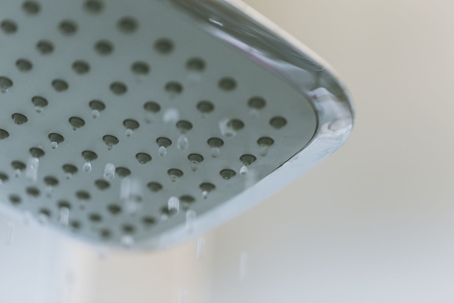If you are an avid google-user, and you’ve clicked that search bar and typed in: “cracks in my walls and flooring” or “what causes mold growth on my walls”—you’ve probably seen the phrase: “slab leak”. But, what exactly is a slab leak? And, how do you know if it is the source of your home deterioration?
I’m sure your google search elicited numerous potential results, so we here at JC Plumbing are here to make sense of all of that online jargon. Here is your comprehensive guide to slab leaks. At the end of this blog, you’ll know what a slab leak is, how to detect one, and what steps must be taken to restore your foundation.
Slab Leaks: Defined
If you look over your homes’ blueprints, you’ll find a series of plumbing pipes that run underneath and throughout your entire property. In order for these pipes to deliver water to your indoor appliances, they must run through the base of your property, and through your concrete slab foundation. These foundational slabs are responsible for carrying the weight of your structure, keeping groundwater out of your home, and acting as a barrier between external vapors and your property.
So, when these slabs become compromised, the integrity of your home becomes threatened. What compromises these slabs? Broken pipes. When corrosion, earthquakes, and other ground movements occur, the pipes that lay beneath your home can break and begin leaking. This excess water then starts to seep into your foundation—this is a slab leak.
Detecting Slab Leaks
Slab leaks can occur from broken water lines or damaged sewer lines. If your slab leak is due to a broken water line, it will be easier to detect, as it develops quickly. Sewer line leaks linger quietly, accumulating pressure until detrimental damage is done. No matter the cause, a slab leak can cause cracks in your foundation, buckling, and in severe cases cause your property to begin sinking. That’s why it is imperative to keep an eye out for these signs of a slab leak:
You have visible mold growth along your walls or on your flooring.
You smell a musty odor in your home.
There are noticeable wet spots and/or warm sports on your floor.
You notice evident cracks on the exterior of your home.
You see cracks within your home, along the walls or flooring.
There are soggy areas around your homes’ perimeter/foundation.
You experience an unexplained increase in your water bills.
There is a running water sound when all indoor appliances are shut off.
If you experience any of these slab leak symptoms, it is imperative you contact your local plumbing company ASAP to avoid further damages to your home.
Slab Leak Causes
There are many contributing factors, apart from the pressurized pipes beneath your foundation, that contribute to slab leaks. Here are the common contributors:
Environmental occurrences that cause ground movement.
Pipes that have reached the end of their lifespan.
Piping that was not properly installed.
Plumbing parts that have become defective or were defective at the point of installation.
Plumbing surrounded by soil with high levels of corrosive substances.
Slab foundations settling and shifting.
The importance of professional plumbing installation is evident. It is the first step to take in protecting your property from potential slab leaks.
Slab Leak Solutions
Repairing a slab leak starts with accessing your affected pipe. Based on whether your slab leak is emanating from a water line or a sewer pipe, and whether the leak is long or short, the materials and method of repairs will vary. Here are three ways to repair a slab leak:
Pipe Re-Routing—This method of repairs is for pipes with limited, or short, fractures. In this case, a professional plumber will be able to lay a new pipe above ground, replacing the affected portion of the piping.
Re-Piping—This route of repairs will be used when you are experiencing multiple leaks. You will need to completely replace your pipes.
Pipe Relining—This repair technique requires little to no excavation. It is a trenchless alternative that allows for a liner to be threaded through your affected pipes to re-seal your pipes. This will hold off small leaks; however, it is not recommended for severe cracks in plumbing.
For slab leak inspection and repairs, contact JC Plumbing at (951) 433-7780. We are here to serve our community! For plumbing done right, give us a call!

